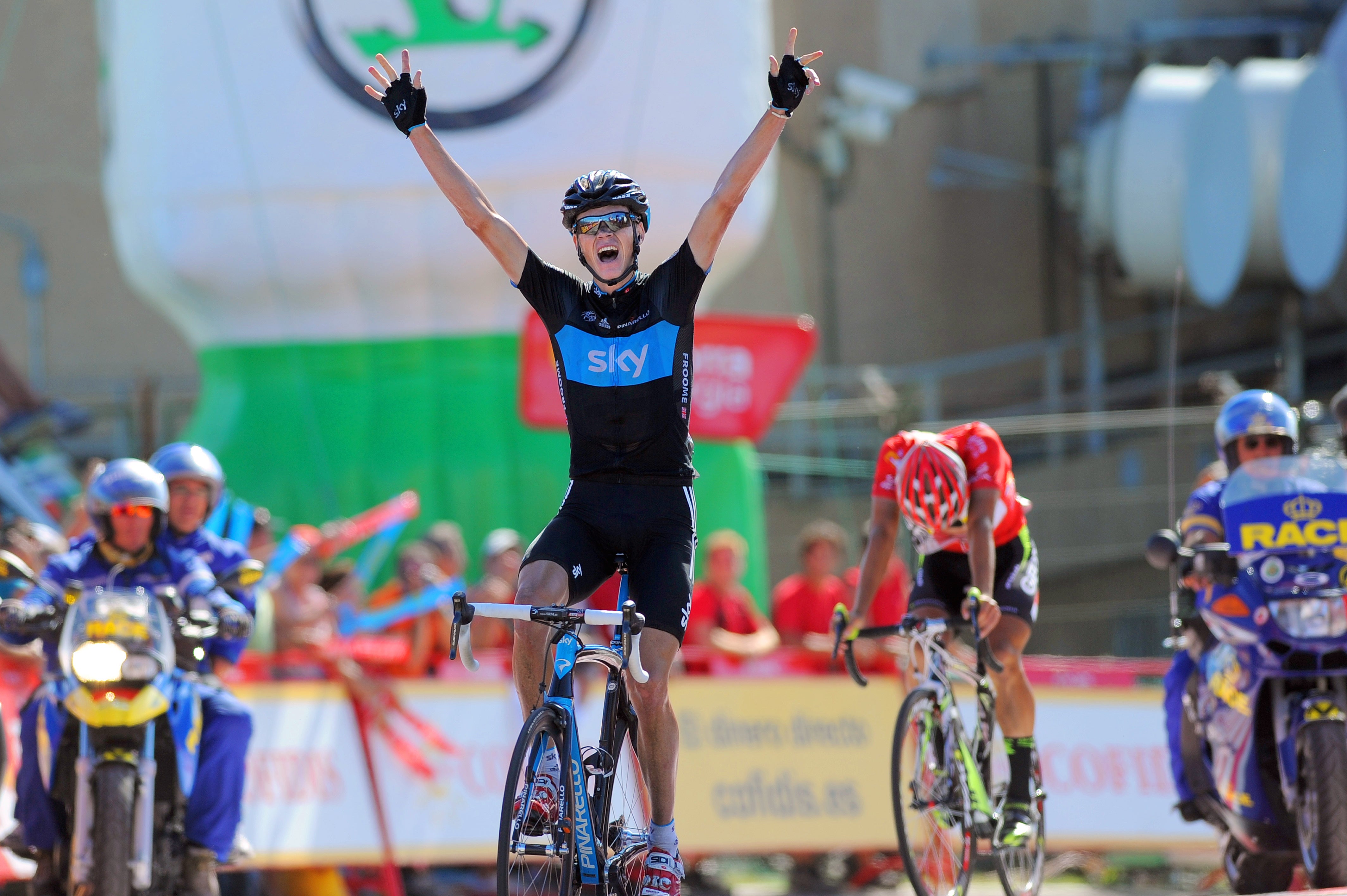Cobo cited for biological passport violation; Froome could be named winner of 2011 Vuelta

Photo: Tim de Waele/Corbis via Getty Images
Chris Froome could become the first rider to win a grand tour from a hospital bed.
Just as the four-time Tour de France winner is recovering from surgery in the wake a horrific crash Wednesday, the UCI dropped a bombshell Thursday afternoon.
The cycling governing body confirmed that Juan José Cobo, who won the 2011 Vuelta a España, has been cited for an anti-doping rule violation for abnormalities in his biological passport from 2009 to 2011.
The statement was vague in that it only mentions a three-year ineligibility for Cobo, who last raced in 2014.
The implications are clear, however. Cobo could be disqualified from the Vuelta victory, among other results, and Froome could be named the winner. None of that has happened yet. Cobo, 38, could challenge the ruling to the Court of Arbitration for Sport.
Vuelta a España race director Javier Guillén, speaking with the Spanish sport daily AS, said it’s not up to the race to declare Froome a winner.
“It’s up to the UCI to decide if Froome is the winner of that edition,” Guillén said. “Logic would say that whoever was second would be first in a case like this. I don’t want to judge anyone, but those who cheat need to be disqualified. The only thing we want is that the winners of the Vuelta are credible.”
The UCI did not provide more details but indicated a full decision would be posted on its website at a later date. The Spanish sports daily MARCA reported that Cobo had already been warned about uneven numbers in his biological passport while he was still racing, but it wasn’t to warrant a sanction. MARCA suggested that tests using a new methodology were conducted on blood samples, stored for up to 10 years, revealing the presence of banned substances, most likely the blood booster EPO.
The oddly timed ruling comes nearly eight years after Cobo, then racing on the Geox-TMC team, beat Froome by 13 seconds in what was the first signs of Froome’s emergence on Team Sky as a grand tour powerhouse.
Up to that year’s Vuelta, Froome’s best previous grand tour result was 32nd in the 2009 Giro d’Italia. After that close call in Spain, Froome returned to the Vuelta five more times before finally winning in 2017.
Cobo, meanwhile, never won a race again after beating back the rider who would develop into the most successful grand tour rider of his generation. Cobo had previously won the Tour of the Basque Country in 2007. Ironically, Cobo was awarded a stage victory in the 2008 Tour de France at the Hautacam summit in the Pyrénées after his then-teammate and stage-winner Leonardo Piepoli was disqualified. Cobo’s Scott-American Beef team (formerly Saunier Duval) was later riddled with other doping scandals, including cases involving Piepoli and Riccardo Riccò.
After beating Froome in 2011, Cobo rode two unproductive seasons with Movistar, and finished his career with a low-level Turkish team, retiring in 2014.
If Froome is eventually awarded the Vuelta crown, it would technically make him Great Britain’s first grand tour winner. Bradley Wiggins, third in the 2011 Vuelta, currently holds that honor with his 2012 Tour de France victory.
Here is the complete UCI statement:
The Union Cycliste Internationale (UCI) announces that the UCI Anti-Doping Tribunal has rendered its decision in the case involving Juan José Cobo Acebo.
The Anti-Doping Tribunal found the retired rider guilty of an anti-doping rule violation (Use of a prohibited substance) based on abnormalities from 2009 and 2011 detected in his Biological Passport* and imposed a three-year period of ineligibility on the rider. In accordance with the Procedural Rules of the Anti-Doping Tribunal, the decision will be published on the UCI website in due course.
The decision may be appealed before the Court of Arbitration for Sport pursuant to Article 30.2 of the UCI Anti-Doping Tribunal Procedural Rules and Article 74 of the UCI Constitution within one month as of today.
At this stage of the procedure, the UCI will no make any further comments.
(*) An Athlete Biological Passport (ABP) is an individual, electronic record for each rider, in which the results of all doping tests collected in the framework of this programme over a period of time are collated. The management of the ABP programme is carried out by the Cycling Anti-Doping Foundation, the independent body mandated by the UCI to carry out the anti-doping testing programme in cycling.